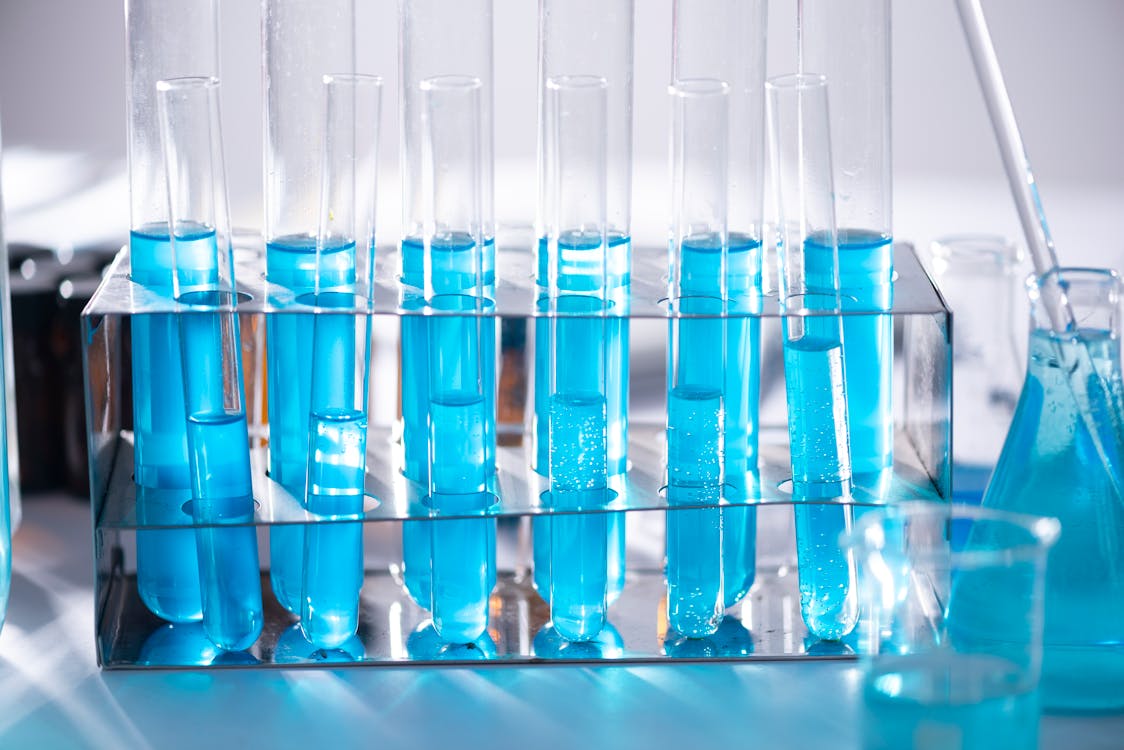Week In Review: Eccogen Out-Licenses GLP-1 Agonist To AstraZeneca In $2 Billion Deal
TM Editors' note: This article discusses a penny stock and/or microcap. Such stocks are easily manipulated; do your own careful due diligence.

Image Source: Unsplash
Deals and Financings
Eccogene, a Shanghai-Boston biotech, out-licensed global rights (ex-China) for its novel small molecule GLP-1 agonist to AstraZeneca (AZN) in a $2 billion blockbuster deal (see story). Eccogene will receive $185 million upfront and up to $1.8 billion in milestones, plus royalties.
In preclinical studies, ECC5004 showed good efficacy and safety profiles with potential to be first-in-class, according to the company. Eccogene says ECC5004 will be the first small molecule candidate for the crowded indication, with an oral delivery that offers easier use and better convenience. Eccogene and AstraZeneca will partner the China development and commercialization of ECC5004.
Zhuhai’s Biotheus sold ex-China rights for a bispecific antibody candidate to BioNTech (BNTX) for $55 million upfront and a milestone package of more than $1 billion, plus royalties (see story). The candidate, PM8002, is made up of humanized anti-PD-L1 single heavy-chain variable (VHH) domains fused to an anti-VEGF-A IgG1 antibody containing Fc-silencing mutations.
It is currently being tested in China Phase II trials to test its efficacy and safety as a monotherapy or in combination with chemotherapy in advanced solid tumors patients. The agreement was BioNTech's fifth in-licensing with a China biopharma this year.
WuXi XDC, a China CRDMO that offers drug development and manufacturing for antibody drug conjugates (ADCs) and other novel bioconjugates, is conducting a $500 million Hong Kong IPO (see story). As a member of the WuXi AppTec empire, WuXi XDC is 60% owned by WuXi Biologics (WXXWY) while WuXi AppTec, the parent, owns the remaining 40%.
The IPO comes at a time when ADCs and bioconjugates are hot, the current favorites of many drug companies looking for the best cancer therapies. The company says it will use the funds to expand its manufacturing capacity and fund possible acquisitions.
Celest Therapeutics (Shanghai) acquired China rights to a novel off-the-shelf CAR-NK cell therapy discovered by Senti Biosciences (SNTI) in a $156 million agreement (see story). Celest will initially conduct a pilot trial in China for SENTI-301A, a multi-armed off-the-shelf CAR-NK cell therapy aimed at GPC3 expressing tumors.
The engineered NK cells target the GPC3 antigen, which is highly expressed in 70% to 90% of HCCs with low or no expression on normal adult tissues. Celest will be responsible for paying up to $156 million in milestone payments, plus royalties.
Argo Biopharmaceutical, a Shanghai RNAi company, raised $41 million in a Series A+ round to develop next-gen RNAi drugs for cardiovascular, congenital, and immune system conditions (see story).
The company, founded by returnees, has experience in RNAi drug development including bioinformatics and nucleic acid sequence design, chemical modification, GalNAc coupling technology, extrahepatic delivery technology development, and oligonucleotide CMC. The financing was led by CS Capital, with participation from Huagai Capital and existing investor Trinity Innovation Fund.
Suzhou Porton Advanced will partner with BioMap, an AI company that has developed the Xtrimo platform that offers Large Language Models to predict the behavior of proteins (see story). The collaboration will use Porton Advanced's novel Adeno-Associated Virus (AAV) vector technology platform and relevant research data to develop AAV assembly efficiency models and an assembly distribution model.
The two companies plan to build large-scale life science models that speed up the integration of experimental platforms and intelligent big data analysis platforms. BioMap is headquartered in Menlo Park, CA with operations in Singapore, Beijing, and Suzhou.
Industry Analysis
An In Vivo report called “The Growing Pains of Chinese Biotech” presented data that details facts about China biopharma progress over ten years (see article). One example is this line: “around one quarter of active drug development now has a Chinese origin, with particular emphasis in biologics, cell therapies, and cancer R&D.”
Another states that “there are now around 5,000 drugs under active development by China headquartered companies, part of an ecosystem of around 1,700 drug developers. Remarkably, it was only five years ago that Chinese companies collectively possessed just 1,000 drug programs, and 10 years ago the figure was a mere 200.” For context, these numbers compare to 22,000 drug assets in development globally.
Trials and Approvals
Sirius Therapeutics filed to begin a first-in-human clinical trial in Australia of SRSD107, its next-gen siRNA therapy aimed at preventing and treating thromboembolic disorders (see story). SRSD107 is a novel double-stranded small interfering ribonucleic acid (siRNA) that targets coagulation factor XI (FXI) mRNA and inhibits FXI protein expression, blocking the coagulation pathway and promoting anticoagulant/anti-thrombotic effects.
In preclinical in vivo tests, a single subcutaneous dose showed near 100% reduction of FXI levels for up to six months without bleeding events. Founded in 2021, Sirius has a discovery center in San Diego and a translational medicine center in Shanghai.
Lerna Biopharma, a Singapore, Boston, Shanghai company, will present its lead drug, a first-in-class siRNA that promotes liver regeneration in patients at risk for liver failure (see story). The candidate, LR1, takes advantage of the liver’s ability to heal itself, a long-sought goal.
In preclinical testing, LR1 improved liver function and protected the liver from further degeneration. Lerna discovered the novel target using its Quartz platform, which discovers novel targets that are usually unavailable but can be addressed by siRNA technology. Lerna will describe the novel siRNA candidate at a Boston scientific convention, The Liver Meeting, later this week.
More By This Author:
Week In Review: Hengrui Out-Licenses Next-Gen PARP1 To Merck KGaA For $1.7 BillionWeek In Review: Hansoh Sells Ex-China ADC Rights To GSK In $1.6 Billion Deal
Week In Review: China's Biopharmas Announce $2.5 Billion In Deals
Disclosure: None



